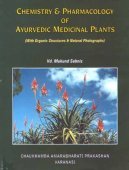Dhanvantari, Dhanvamtari: 22 definitions
Introduction:
Dhanvantari means something in Hinduism, Sanskrit, Jainism, Prakrit, Marathi, Hindi. If you want to know the exact meaning, history, etymology or English translation of this term then check out the descriptions on this page. Add your comment or reference to a book if you want to contribute to this summary article.
Dhanvantari has 20 English definitions available.
Languages of India and abroad
Sanskrit dictionary
[Deutsch Wörterbuch]
Source: Cologne Digital Sanskrit Dictionaries: Böhtlingk and Roth Grosses Petersburger WörterbuchDhanvantari (धन्वन्तरि):—(dhanvan = dhanvani, + tari) m.
1) der im Bogen seinen Weg Zurücklegende, Beiname der Sonne [Mahābhārata 3, 155.] yajña [ĀŚV. GṚHY. 1, 3. 12.] am Morgen und Abend opfert man dem Soma, Vanaspati, AgniSoma, Indra-Agni, Himmel und Erde, Dhanvantari, Indra, allen Gottern, dem Brahman 2. ähnlich [Śāṅkhāyana’s Gṛhyasūtrāṇi 2, 14] (wo aber bharadvājadhanvanvantari). [Manu’s Gesetzbuch 3, 85.] eine Speisegabe (bali) an Dh., das Meer, die Kräuter und Bäume, Himmel und Erde [Kauśika’s Sūtra zum Atuarvaveda 74.] hat seinen Sitz im Nordosten [Mārkāṇḍeyapurāṇa 29, 17]; vgl. dhanvantara [Mahābhārata 13, 4662.] —
2) ursprünglich wohl nicht verschieden ist der bei der Quirlung des Oceans auftauchende, einen mit Amṛta gefüllten Krug in der Hand haltende Gott Dhanvantari, der Verfasser des Āyurveda und Arzt der Götter. Divodāsa Dhanv., König von Kāśi, gilt für eine Wiedergeburt des Gottes. [Trikāṇḍaśeṣa 2, 7, 21.] [Mahābhārata 1, 1149.] [Harivaṃśa 1523. fgg. 1735. 12187.] [Rāmāyaṇa] [Gorresio 1, 46, 30. 6, 6, 22.] [Suśruta 1, 1, 7.] ahaṃ hi dhanvatarirādidevo jarārujāmṛtyuharo marāṇām [3, 20. 72, 13. 194, 13. 324, 3. 2, 17, 7. 262, 5.] [Viṣṇupurāṇa 76 406. fg.] [Bhāgavatapurāṇa 2, 7, 21. 8, 8, 34. 9, 17, 4.] [Rājataraṅgiṇī 7, 1392] (dhā). —
3) Nomen proprium des Verfassers eines medicinischen Wörterbuchs (nighaṇṭu, nirghaṇṭa, nighaṇṭa): dhanvantaripaṇḍitakṛtaguḍūcyādinighaṇṭa [NIGH. PR.1,] [MACK. Coll.] [?II,63. Colebrooke II,20. Oxforder Handschriften 164,a,3. No. 451. Westergaard’s Verzeichniss 105,b. Scholiast zu Hemacandra’s Abhidhānacintāmaṇi 638. fg.] (dhātvantari). Dieser ist viell. eine der 9 Perlen am Hofe Vikramāditya’s [HAEB. Anthol. 1.] — Vgl. dhānvantarya .
--- OR ---
Dhanvantari (धन्वन्तरि):—
2) vgl. [Spr. 2999], wo unter sadvaidya, kavibhūpati und harihara Dhanvantari zu verstehen ist.
Source: Cologne Digital Sanskrit Dictionaries: Sanskrit-Wörterbuch in kürzerer FassungDhanvantari (धन्वन्तरि):—m. Nomen proprium eines göttlich verehrten Wesens [Gautama's Dharmaśāstra] [Mānavagṛhyasūtra 2,12.] [Mahābhārata 13,97,12.] yajña m. ein Opfer an Dh. Auch als Beiw. der Sonne. Später gilt er als Arzt der Götter , der bei der Quirlung des Oceans zum Vorschein kommt. Divodāsa Dhanvantari , König der Kāśi , ist eine Wiedergeburt des Gottes. grantha m. , nighaṇṭu m. und pañcaka n. Titel von Werken [Private libraries (Gustav) 1.]
Sanskrit, also spelled संस्कृतम् (saṃskṛtam), is an ancient language of India commonly seen as the grandmother of the Indo-European language family (even English!). Closely allied with Prakrit and Pali, Sanskrit is more exhaustive in both grammar and terms and has the most extensive collection of literature in the world, greatly surpassing its sister-languages Greek and Latin.
See also (Relevant definitions)
Starts with: Dhanvantarigrantha, Dhanvantarigrasta, Dhanvantarigunagunayogashata, Dhanvantarinighantu, Dhanvantaripancaka, Dhanvantarisaranidhi, Dhanvantarivilasa, Dhanvantariya, Dhanvantariya pathyapathya, Dhanvantariyapathyapathya.
Ends with: Bharadvajadhanvantari, Rajivalocana dhanvantari.
Full-text (+219): Dhanvantarya, Dhanvamtari, Vaidyaraja, Jihmashalya, Krakarata, Dhanvantarigrasta, Sudhapani, Dhanvamtri, Dirghatapas, Ayurvedamaya, Kashipati, Dhanvantariya, Dhanva, Abja, Dhanvantara, Ganavatisuta, Kalabhava, Aushadhacarya, Ambarada, Niratiraja.
Relevant text
Search found 64 books and stories containing Dhanvantari, Dhanvamtari, Dhanvaṃtari; (plurals include: Dhanvantaris, Dhanvamtaris, Dhanvaṃtaris). You can also click to the full overview containing English textual excerpts. Below are direct links for the most relevant articles:
Garga Samhita (English) (by Danavir Goswami)
Verse 1.13.19 < [Chapter 13 - The Liberation of Pūtanā]
Verse 5.18.2 < [Chapter 18 - Uddhava Hears the Gopīs’ Words and Returns to Mathurā]
Verse 1.5.6 < [Chapter 5 - The Lord’s Appearance]
Jivanandana of Anandaraya Makhin (Study) (by G. D. Jayalakshmi)
Nāndī and Prastāvanā < [Chapter 4 - Āyurvedic principles in Jīvanandana Nāṭaka]
Analysis of Nāndī < [Chapter 6 - Dramatic aspects of the Jīvanandana Nāṭaka]
Act I (Summary) < [Chapter 3 - Summary of the Play Jīvānandana Nāṭaka]
Chaitanya Bhagavata (by Bhumipati Dāsa)
Verse 3.2.143 < [Chapter 2 - Description of the Lord’s Travel Through Bhuvaneśvara and Other Placesto Jagannātha Purī]
Verse 1.2.175 < [Chapter 2 - The Lord’s Appearance]
Amarakoshodghatana of Kshirasvamin (study) (by A. Yamuna Devi)
Flora (5): Trees < [Chapter 5 - Aspects of Nature]
Daily Life (1): Food and Drinks < [Chapter 3 - Social Aspects]
Flora (10): Roots < [Chapter 5 - Aspects of Nature]
Puranic encyclopaedia (by Vettam Mani)
Charaka Samhita and Sushruta Samhita (by Nayana Sharma)
Dhanvantari (the god of the physicians) < [Chapter 8]
The authors and redactors of the Suśruta Saṃhitā and its date < [Chapter 1]
The Teacher of Āyurveda < [Chapter 3]
Related products


